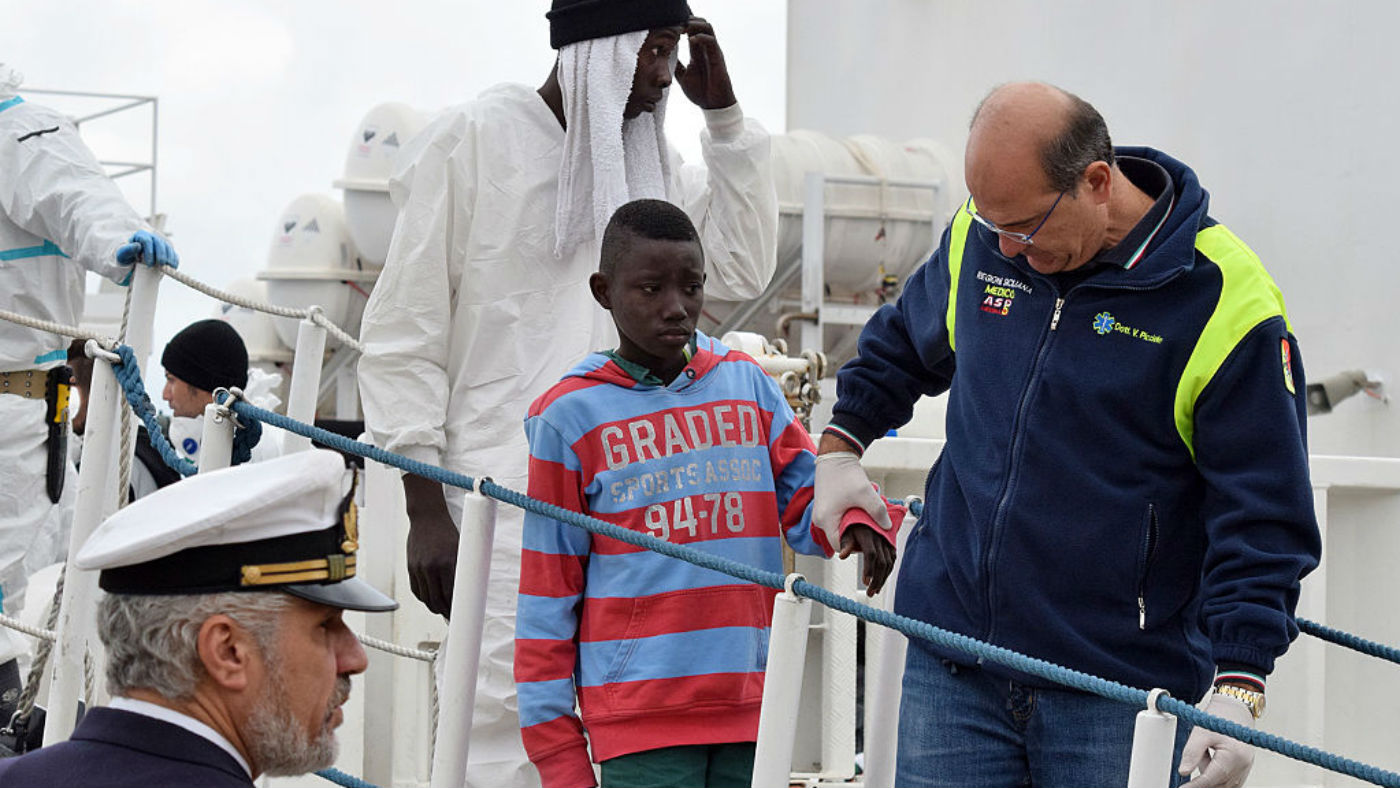Italy praised for giving lone child refugees legal protection
Country passes first law in Europe guaranteeing children travelling alone a minimum standard of care

A free daily email with the biggest news stories of the day – and the best features from TheWeek.com
You are now subscribed
Your newsletter sign-up was successful
Italy has become Europe's first country to pass a law giving comprehensive protection to lone child migrants.
Known as the Zampa law, the legislation sets minimum standards of care, such as reducing the time children can be kept in migrant reception centres, guaranteeing access to healthcare and setting a ten-day window for authorities to confirm their identities.
It also prohibits turning unaccompanied and separated children away at the border or if it could cause them harm, AP reports.
The Week
Escape your echo chamber. Get the facts behind the news, plus analysis from multiple perspectives.

Sign up for The Week's Free Newsletters
From our morning news briefing to a weekly Good News Newsletter, get the best of The Week delivered directly to your inbox.
From our morning news briefing to a weekly Good News Newsletter, get the best of The Week delivered directly to your inbox.
Unicef, the UN's children agency praised the move and said it was the first of its kind in Europe.
Afshan Khan, Unicef's special coordinator for the refugee and migrant crisis in Europe, said: "While across Europe we have seen fences going up, children detained and pledges unmet, the Italian parliamentarians have shown their compassion and duty to young refugees and migrants.
"This new law serves not only to give refugee and migrant children a sense of predictability in their uncertain lives after risking so much to get to Europe, it serves as a model for how other European countries could put in place a legislative framework that supports protection."
The number of unaccompanied child migrants arriving in Italy is believed to still be on the increase, says the charity.
A free daily email with the biggest news stories of the day – and the best features from TheWeek.com
In 2016, around 26,000 children arrived in the country without their families, the majority crossing the Mediterranean in unsafe boats from North Africa.
In the first two months of 2017, 2,000 arrived, the majority aged between 14 and 17.
Italy's move is in stark contrast to the UK, where MPs earlier this month chose not to continue a scheme to accept more lone child refugees from Europe.
The Dubs Amendment, named after Labour peer Alf Dubs, who arrived in the UK as an unaccompanied child migrant himself before World War II, was initially aimed at giving more than 3,000 child refugees safe passage into the UK.
But ministers claimed local councils did not have the capacity to support the children and limited the number to 350.
The BBC said Lord Dubs was "disappointed" but still believed the scheme might be reinstated. He said: "The campaign isn't over. Our better nature will surely carry the day."